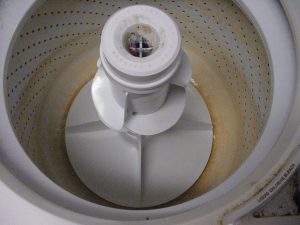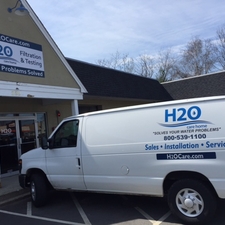FACTS ABOUT SALT FREE “WATER SOFTENERS”
A number of companies have come onto the market with a product they call a Salt Free Water Softener. The claim is that these systems change the physical properties of hardness minerals (calcium and magnesium) by turning them into tiny hard crystals which will not adhere to pipes and other fixtures in your home. In theory, it’s a great idea to be able to eliminate the salt requirement. The problem is that there are a number of common minerals or town additives in your water supply that make these systems ineffective after having invested your money into this type of product. Additionally, this approach does not create “soft water”, therefore you will not get the full benefits of soft water in your home.
HOW CAN WE TEST THE WATER TO SUBSTANTIATE IT WORKS?
Standard water softener testing by measuring hardness levels before the water softener and then after the water softener to make sure hardness minerals are being removed cannot be employed with a Salt Free water softener as the hardness minerals are not removed from the water. Testing will show hardness levels approximately the same prior to water going through the system as it is after going through the system. As a result of this, the only way you will know for sure if the hardness minerals are not building up inside your pipes and other fixtures is if you see no evidence of this after months or years. By then, your warranty period will likely be over.
IF MY WELL WATER HAS IRON OR MANGANESE IN IT, WILL IT WORK?

Dissolved Iron Staining
Different companies selling a purported salt free water softener have different parameters regarding levels of iron and manganese that will render the “Salt Free” Water Softener ineffective. The highest allowable level in the published information we have seen is Iron at .3 parts per million and manganese at .05 parts per million. For those of you living in Massachusetts, New Hampshire or Maine and have a private well, you know that iron and manganese levels typically exceed these levels. As a result, a Salt Free “water softener” is definitely not a viable option for you. If you lived in Nebraska or Kansas where they have plenty of calcium and magnesium (the “hard water” minerals) in the bedrock and water but no iron or manganese, you might consider one of these products – might! For more information on Iron or Manganese, see the link at Manganese in Water Article in Water Tech or at Iron Article in Water Technology Magazine.
IF MY WATER IS TOWN OR CITY SUPPLIED AND HAS IRON OR MANGANESE IN IT WILL A SALT FREE WATER SOFTENER WORK?
In order to control corrosion in a city or town’s water piping distribution system, a common method employed is the addition of polyphosphates into the water supply. They are used to prevent “red” color (from iron) and “black” color (from manganese) in the water by coating the minerals, prevent and/or retard scale formation on pipes (from minerals depositing) and pipe corrosion (from low pH and/or dissimilar metals) in the water distribution system and to reduce soluble lead and copper in potable water delivered to the consumer’s tap. The problem for a Salt Free Water Softener is that polyphosphates render them ineffective as the coating of minerals in the water do not allow the system to work.
As a company that has been in the water treatment business since 1989, we have seen and are presented with new technologies all of the time. The ones we feel have merit we test in-house and in the field before offering these products to our customers as viable solutions to their water quality issues. If we were presented with a Salt Free water softener that we believed would work in Massachusetts, New Hampshire or anywhere our customers are located, we would add the product to our warehouse. To date, we have not seen such a product.
Formed in 1989, H2O Care, Inc. is an established regional based water treatment company with over 10,000 installations in New England, with offices in Hudson, MA, Middleton, MA and a service depot in Plymouth, MA. The company has been published multiple times in Water Technology Magazines on various water contaminant issues. See our publications section at http://www.h2ocare/pub. Email us at service@h2ocare.com or call us at 800-539-1100.


